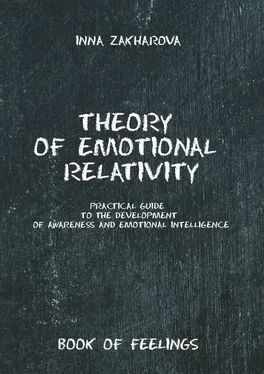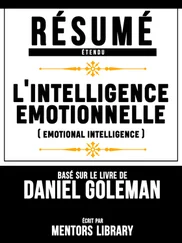The most important condition for freeing
yourself from fear is setting goals and keeping your
internal focus on the desired result
If your inner view is focused on the search for dangers, you will not see your goals by yourself, this is only conscious work.
Shame. How does it Serve?
In ancient times, people united in tribes in order to withstand external dangers. If for some reason a person was left alone, it meant death for him. That’s why for each of us it is very important to feel like a group, because the ancient part of our brain perceives the lack of belonging as a danger to life. But how do you understand that you are one of them or a stranger? How to fit in a tribe, how to become part of this group, so that it protects you and helps you to withstand external threats? It is a feeling of shame that tells us that we are doing things, for which we can be condemned, for which we can be expelled.
In the modern world, it seems that we can live outside the group, that there is no external danger. However, our brains are millions of years old, we can convince ourselves as much as we like, but there is a clear connection in our subconscious: belonging to a group is life, exclusion is death. So shame is a social emotion that is always associated with comparing yourself and other people.
We call the sense of affiliation in ordinary life – love. When we love someone, he is very close, valuable, exceptional to us, we want to devote time to him, our attention is always directed to the object of love, we want to take care of him, we are ready to sacrifice for him. Being loved is a successful strategy for life. We need to have the same attitude to ourselves in order to take care of ourselves, in order to give ourselves priority over others, in order to be happy.
Self-love is a criterion of belonging to the family
If you accept yourself, take care of yourself, pay attention to yourself, like yourself – this means that you accept your ancestors, you are a part of them, because everything that is in you has come from them. When we love ourselves, we know that we are a part of something larger, ourselves among ourselves. When we do not love ourselves, do not recognize our strong qualities, our resources, and consider ourselves insufficiently attractive, it means that we exclude ourselves from our system and look for another group, we want to be liked to this group in order to feel belonging.
If a person is often met with excessive shame, this situation means that he does not feel his belonging, does not accept some of his qualities, constantly compares himself with others and loses in this comparison. There is a good cartoon from our childhood “The Ugly Duckling”, about how a little swan suddenly, being in a bird’s yard, tried to attach itself to hens, then to ducks, to geese and nowhere felt like his own. Shame, melancholy, loneliness filled his life, danger waited for him around every corner. His life changed radically when he found his own group of swans and flew with them to distant lands. So we, having claims to our parents and family, are looking for a better place among other people, but there is no better place like your family for you. When you understand this, you begin to appreciate, a lot of strength and energy appear, and suddenly you become attractive to the whole outside world.
Ironically, the mission of shame
is to take care of love
A little later we will talk about tenderness, as a criterion of belonging and communication, and shame is a criterion of disconnection. Shame reports that now you do not fit in the environment you want to fit in, now you feel that you do not meet the expectations of those observers with whom you would like to be together as one.
Thus, shame takes care of love, of communication, of belonging. The law of belonging is very important in systems. We want to receive a message from the society in which we live: “You are as you should be. You are ours. You are like us. You are with us.” If we receive this message, we feel safe, we feel accepted (we receive love), so we experience a lot of positive emotions.
But if we do not receive such a message from society, we immediately have an inner feeling that we are doing something wrong. You feel that you are a little bit different in order to fit into your important environment. It is shame that gives us such a clue.
Of course, someone can say that shame appears without people. But in fact, if you are ashamed, and there is nobody around, it means that inside your head are observers, witnesses, they are looking at you. Perhaps, the ideal you look at the imperfect you, if there is a certain image inside that you would like to match. Perhaps, you look at yourself with the eyes of your parents, with their expectations and hopes, which you would like to meet and be good, to receive love.
That is why we say that shame is a social emotion, and it is worth looking for the eyes of observers, even if it is obvious that there aren’t any witnesses around you. If there is shame, the eyes of the observers are always there.
Shame is an emotion that is generally not discussed about at all. People talk about their fears, show their anger, joy, sadness, but about shame everything is “as quite as a lamb.” We are usually silent about things that are associated with shame, we hide them, so that no one knows as much as possible. And if there are witnesses (those who know), then they must somehow be bribed or destroyed, or hidden from their eyes. As soon as witnesses disappear, shame will diminish. Because shame is a social emotion, a person who is ashamed always wants to hide his eyes, and he always feels the eyes of strangers.
Shame helps to tell us what is not worth doing, what qualities are not worth cultivating. If you cultivate qualities that are not accepted in society, it will push you away. This often happens in the first grades of the school, when children still do not have the ability to hide their feelings, they can sometimes be cruel, too forthright. At some time, society begins to give feedback about your unacceptable behavior, for example, when a child lags behind at school in comparison with other pupils, they do not want to be friends with him, even to sit down at one desk. As a result of it, important people will be further from a child, the distance between them will increase. Let’s see how it works.
Shame is formed in childhood. In the kindergarten, children first begin to be interested in their genitals, in their characteristics, and differences. Then interest arises towards each other, a self-demonstration arises: “Now, look, I have something that you don’t have”. But then comes the period of strong, bright, exaggerated constraint, when the children begin to hide from other children. When a girl, for example, gets dressed in three blouses, she needs to take off the top, and she is shy and hides behind a locker, goes to the toilet or somewhere else. In other words excessive shyness appears. For some time, the child did not know what shame was and could swim or walk naked and didn’t even think about it. But at some point the question of shyness, excessive shame, sharply arises. If you notice this behavior in your child, be calm, it is very good. This suggests that the child begins to enter the age when social instincts appear, there is a desire to fit into meaningful communities, groups and not to do what is not accepted in these groups.
For instance, there is an idea to put a carton box on a head and go to school looking like that. But you can’t do that. You know for sure what will be told: you are a stupid, narrow-minded person. You are not fitted in the group.
Читать дальше












